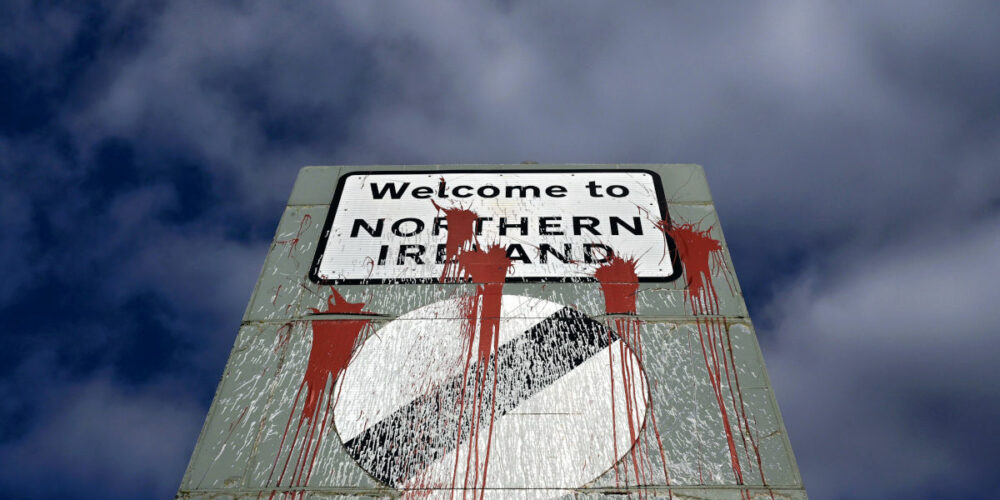The Irish government, aided and abetted by its British counterpart, has been trying to assist and solve the “crisis in unionism” since the DUP began to self-destruct last month.
This is missing the reality of what is happening and ignoring the elephant in the room. The crisis is not in unionism but in the colonial construct of “Northern Ireland” and the unravelling and self-destruction of this abomination.
The partition of Ireland a hundred years ago was a brutal act of British imperialism to protect its colonial interests. The world has moved on and has accepted long ago that colonialism was wrong, it should never have happened, and has no place in the world today and must be abolished, in the same way that slavery was. Unfortunately, the unionists in the North have not faced up to the reality of life in the twenty-first century.
Unionism, as a remnant of this brutal past, can no longer stand in the way of, or veto, the self-determination of the Irish people. The partition of Ireland and the subjugation of the Irish people by Britain has long passed being acceptable—no more acceptable than apartheid was in South Africa. The partition of Ireland was a component of the British Empire; that empire no longer exists. The last remaining vestiges of it must be confined to history also. Neither veto, excuse nor delusion will stop the course of history nor deny the legitimacy of the self-determination of the Irish people.
To think that the unionist ruling class can be cajoled, persuaded or convinced into joining a united Ireland is deluded in the extreme. We only need to look at the reality of unionist majority rule in the North for a hundred years, which amounted to subjugation and discrimination in a two-tier society, of privilege for one and discrimination for the other, kept in place by force: by the RUC, the B Specials, the British army, and loyalist death squads.
After a thirty-year war and eighty years of misrule, the majority of people in Ireland voted for the Belfast Agreement. The agreement—weak and all as it is—has proved to be a step too far for unionism. The agreement sets out a route to British withdrawal and the reunification of Ireland.
Honest brokers may have naïvely believed that it was only a matter of time before unionism would accept the reality of a changing world and fully engage with the spirit of the agreement and concede equality to their republican neighbours. This was never going to happen, such is their supremacist, “no surrender” mentality, evident in their refusal to introduce an Irish Language Act.
When campaigning for abortion rights and marriage equality, the people confronted many powerful opponents, in church, state, and beyond. This did not stop the struggle and eventual victory for what was right.
The same goes for Irish unity. Self-determination is the legitimate goal of the Irish people and will not be stopped by colonialists or by those who wish to continue to walk over the rights of their neighbours.
Unionism’s divide-and-conquer rule has done nothing for their followers and has inevitably failed the unionist section of the working class, leading them into a cul de sac of reaction. The unionists have used and manipulated their followers as a weapon with which to stoke division any time they felt the need, only to abandon those followers to prison cells when they didn’t.
Unlike the North, in post-colonial Ireland unionists fared much better in the South. Despite the Catholic ethos of the state, there was little or no discrimination against citizens based on religion. Despite this, it is understandable why many who identify as unionist (and republican, for that matter) would want no truck with the Southern regime as it stands. It is far from a workers’ paradise.
The working class have been kept apart for a hundred years by their common if unrealised enemy: imperialism.
A socialist republic has always been at the heart of the struggle for self-determination. Socialism will unite the working class naturally on their own programme, instead of being cajoled or bought off into an unnatural alliance with manufactured enemies and so continue to be exploited by the same ruling class. A consensus will not mean a unionist veto in a socialist republic: it will be a united working class, Catholic, Protestant, and Dissenters.
As James Connolly said, “To effect its emancipation Labour must reorganise society on the basis of labour; this cannot be done while the forces of government are in the hands of the rich, therefore the governing power must be wrested from the hands of the rich.”
When Ireland joins the nations of the world as an independent sovereign country, socialism is the glue that will join all the people of Ireland together.






